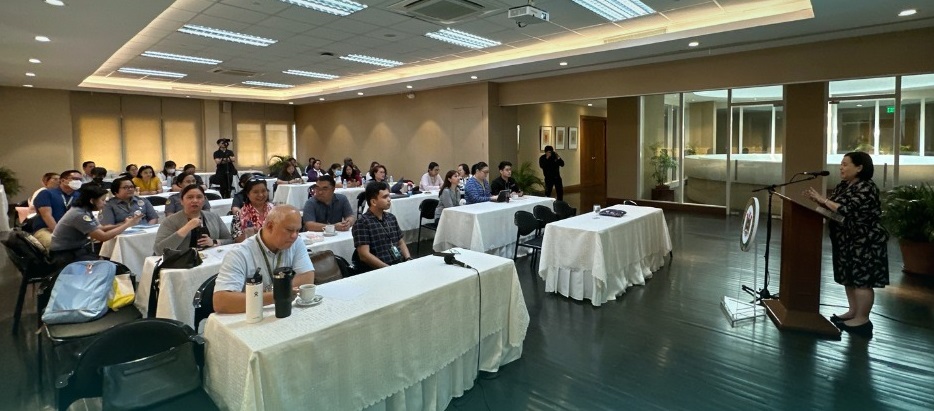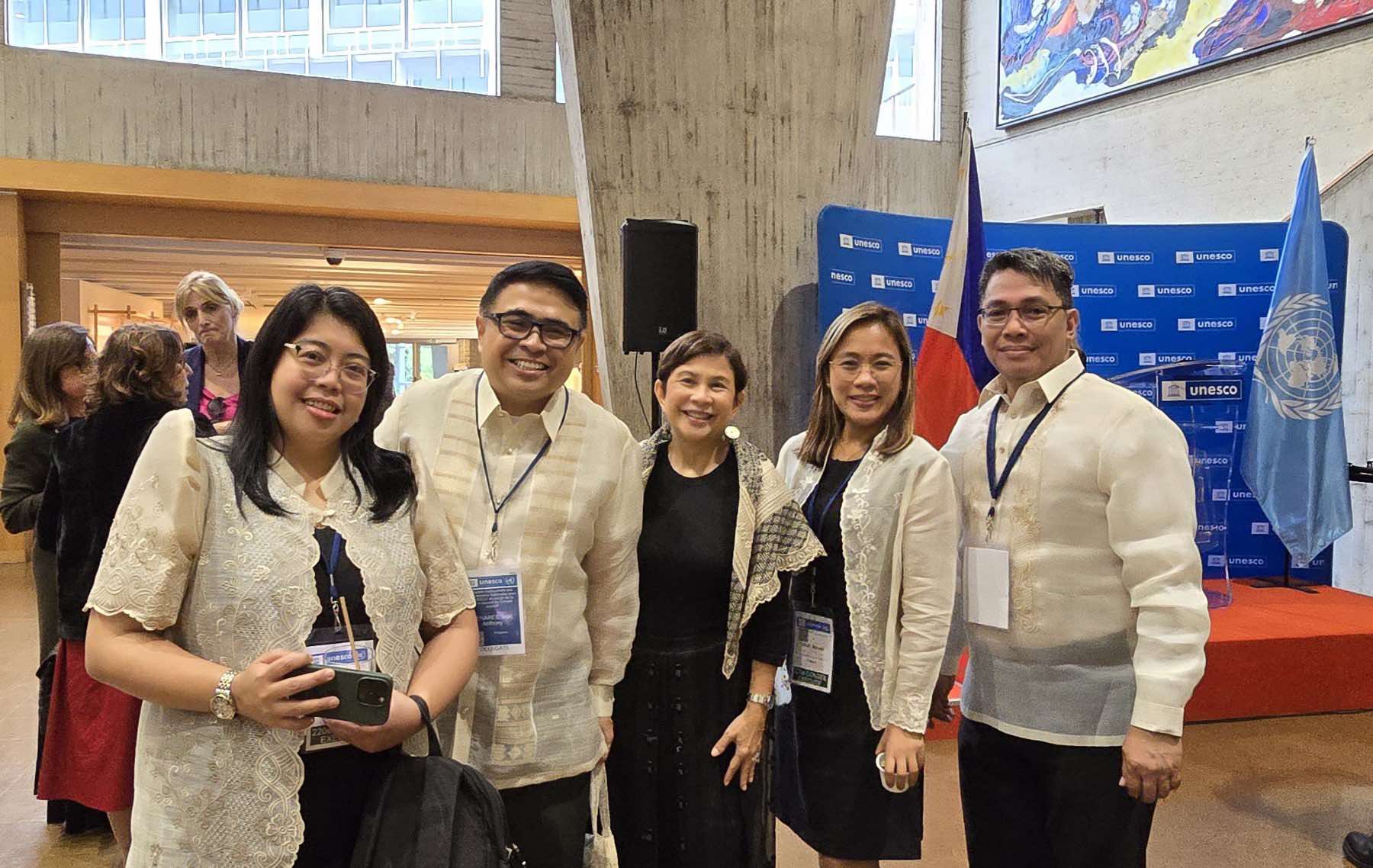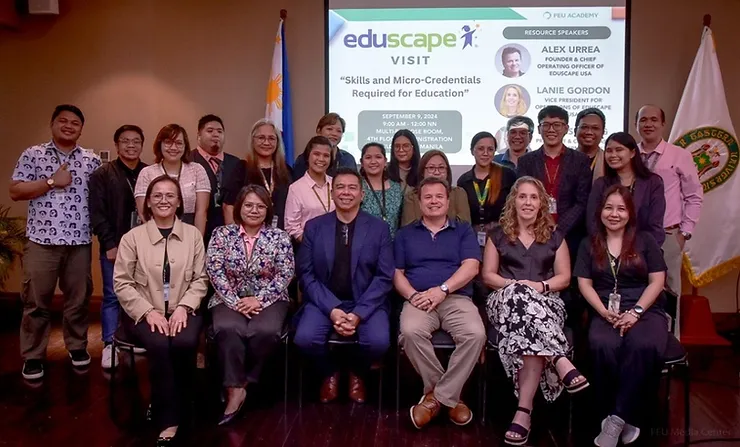Senior Vice President for Academic Affarir Maria Teresa Trinidad P. Tinio shares her insights during the event. Photo by FEU Academy.
In a concerted effort to enhance the effectiveness of the programs of the Community Extension Services (CES), the Institute of Accountancy and Business Finance (IABF), FEU Academy, and the Institute of Arts and Sciences (IAS) launched a tripartite short course on “Fundamentals of Results-Based Management, Monitoring, and Evaluation.”
The course aims to evaluate existing CES programs, serving as both a case study and a catalyst for implementing robust monitoring and evaluation initiatives across all university institutes and offices. Monitoring and evaluation (M&E) are pivotal processes in program and project management, involving the systematic collection, analysis, and reporting of data to inform stakeholders about project progress and success in delivering intended results.
The two-day short course, conducted last March 12 and 13, featured a comprehensive agenda designed to equip participants with essential knowledge and skills in Results-Based Management (RBM), Monitoring and Evaluation (M&E), and Impact Evaluation. Led by Enrique E. Lozari, dean of IABF, the course aimed to provide a platform for CES projects to undergo evaluability assessments, prioritize initiatives, and develop action plans for conducting impact evaluation studies.
On the first day, participants delved into RBM and the planning for delivery of results, M&E methodologies, impact evaluation techniques, and evaluability assessments. The second day made the participants actively engaged in evaluating the CES projects, classifying them based on priority, and crafting action plans for impact evaluation studies.
The evaluability assessments were conducted by a panel of evaluators including Ma. Carmencita Alfonso-Suva, Liana Barro, and Mark Salvador Ysla from IAS, alongside Ryan Christian Mercado, Rey G. Parcon, and Merwin Portugal. Projects assessed during the short course spanned a diverse range of initiatives, including the Bureau of Jail Management and Penology’s “Bread of Hope” and “Spread of Hope,” Project Mangyan’s “Beadwork Livelihood Program,” Project Calatagan’s “Quilitisan Livelihood Credit Cooperative,” Tourism Corporate Social Responsibility initiatives, and mushroom cultivation programs.
With the focus on enhancing the impact and effectiveness of CES programs, the tripartite short course represents a significant step toward fostering a culture of accountability, transparency, and continuous improvement within the university’s community engagement endeavors. By equipping participants with the necessary tools and methodologies, the course sets the stage for informed decision-making and sustainable development in the realm of community extension services.




